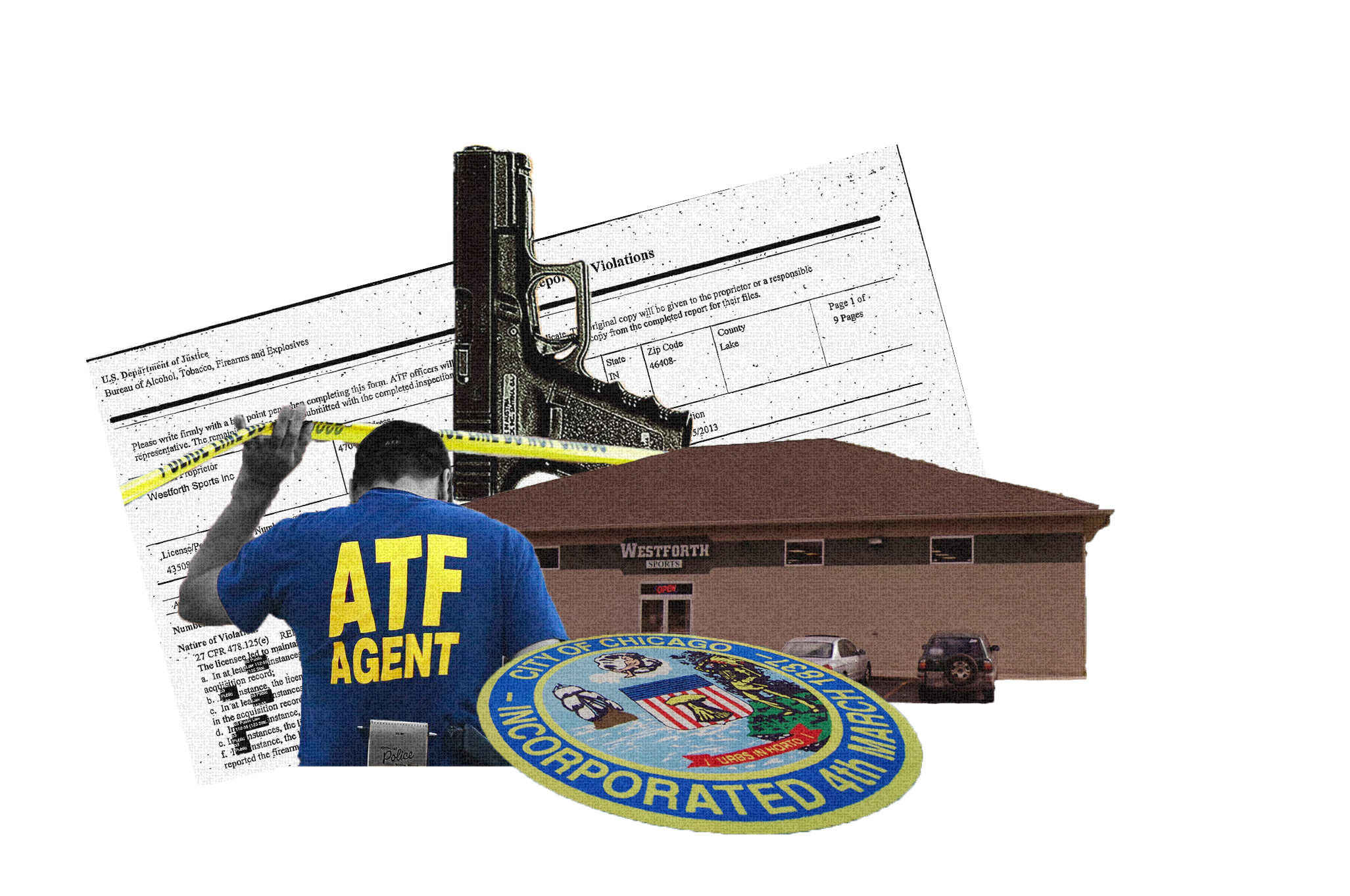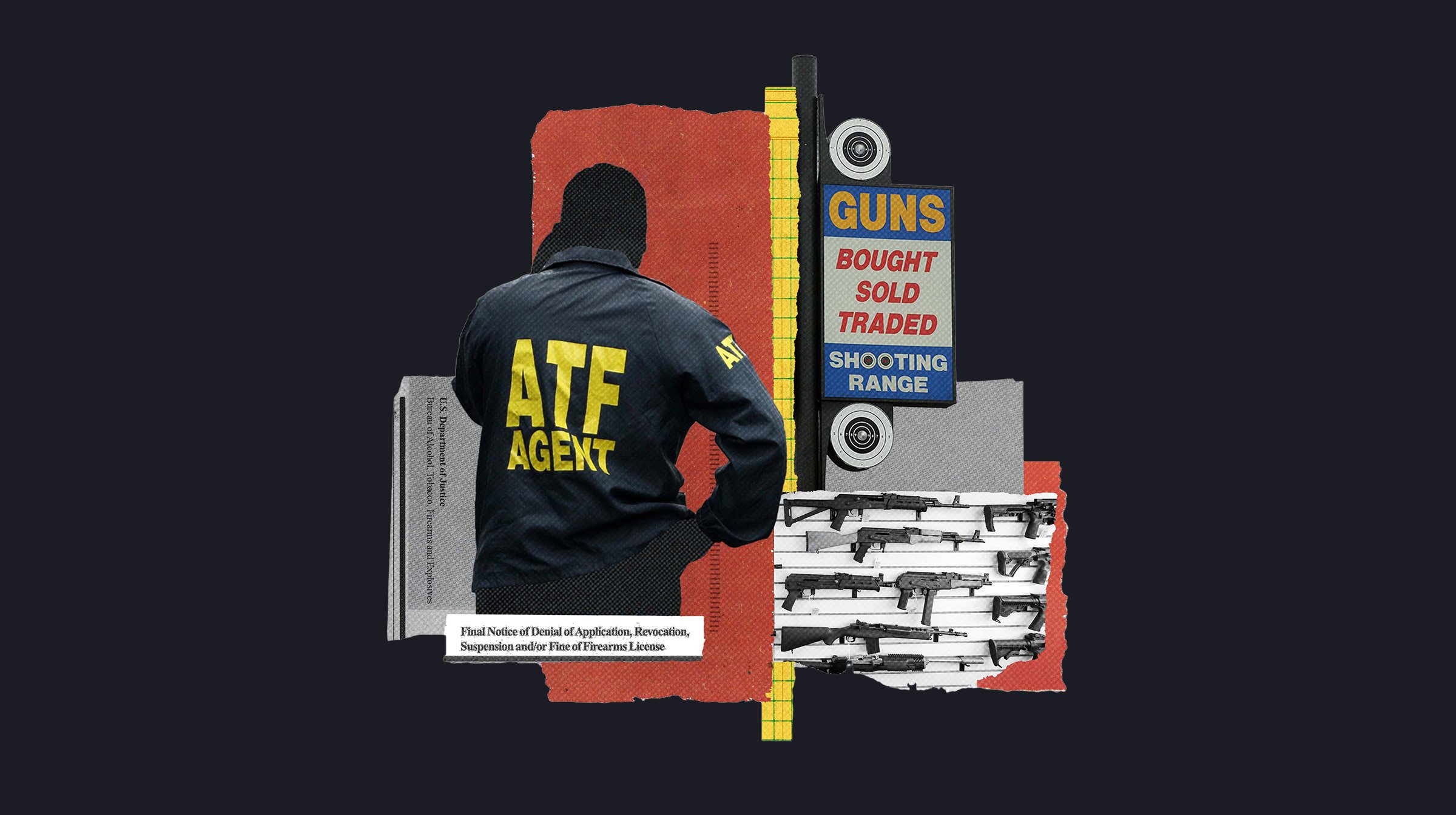Federal lawmakers are demanding that the Bureau of Alcohol, Tobacco, Firearms and Explosives turn over more detailed data from the last five years of gun dealer inspections, pointing to an investigation by The Trace and USA TODAY as evidence that the agency shirked its regulatory responsibilities.
“At a time when gun violence and crime are rising, it is unacceptable for bad actors to repeatedly avoid accountability,” a group of 27 U.S. representatives, all Democrats, wrote in a letter to the ATF, sent on the morning of May 26. “[W]e are concerned that ATF has failed to hold repeat offender gun dealers accountable.”
The letter comes as the country reels from a pair of devastating mass shootings, a racist attack in a Buffalo, New York, grocery store that killed 10 and an elementary school massacre that took the lives of 19 children and two adults in Uvalde, Texas.
Once-dormant debates about universal background checks and red flag laws have reactivated, and legislators have fielded calls to pass meaningful gun reform. The letter focuses on a less widely discussed regulatory avenue, which involves the ATF’s ability to shut down lawbreaking gun dealers who supply guns to people who are legally barred from possessing them.
“It is imperative that the federal government explore every tool at our disposal to reduce gun violence,” Representative Mike Quigley of Illinois who drafted the letter, told The Trace via email. “Lax enforcement of the gun laws already on our books has let some of the nation’s most notorious gun sellers off the hook, turning a blind eye to business practices that contribute to flooding the streets with guns that are then used in crimes.”
In April, The Trace and USA Today published an analysis of ATF inspection records for 13 gun dealers singled out by the city of Chicago for selling a disproportionate amount of crime guns recovered within city limits. The analysis found that the dealers were routinely let off the hook over the past 10 years, sometimes after they directly violated agency guidelines. In several cases, dealers had failed to conduct background checks, falsified ledgers, and neglected to record sales. The ATF never enforced a penalty more severe than a warning.
The report followed a broader investigation published by The Trace and USA TODAY last year, which included a similar analysis of more than 2,000 gun dealer inspections across the United States between 2015 and 2017. That investigation uncovered a pattern of conciliatory inspections that saw dozens of severe penalties downgraded by lenient supervisors.
Legislators who signed the letter — many of whom represent districts in the Midwest and Northeast, where trafficked guns frequently arrive from Southern states — asked the ATF for information on how many federal firearms licensees received warnings the past five years, how many had their licenses revoked, and how many had their penalties downgraded by supervisory agents. They also asked the agency how many inspections it plans to carry out in 2022 and 2023.
Last June, following The Trace’s original investigation, the Biden administration announced steps to ramp up penalties for lawbreaking gun shops. The strategy included a gun-trafficking strike force for five cities, including Chicago, as well as a new “zero tolerance” policy for gun dealers who willfully violate certain laws. The administration also called on Congress to increase the ATF’s funding in order to toughen inspections.
Soon after, House Democrats introduced the Keeping Gun Dealers Honest Act, which would eliminate a requirement that the ATF prove a gun retailer intentionally violated the law before revoking its license. The bill would also enable the ATF to fine retailers upward of $10,000 for violations, and would allow the agency to inspect dealers up to three times per year. (Presently, the bureau can only inspect dealers once a year). The bill has yet to make it out of committee.
“[T]he American people do not believe that the agency tasked with enforcing our nation’s gun laws is doing its job, the gun industry does not take the agency seriously as an enforcer of those laws, and violent crime is on the rise around the country,” the letter continued.
Investigating America’s gun violence crisis
Reader donations help power our non-profit reporting.
In May, the Centers for Disease Control and Prevention published a report confirming that more than 45,000 people died by gunfire in the U.S. in 2020 — an all-time annual high. Estimates from the nonprofit Gun Violence Archive indicate that the death toll for 2021 may be even higher. Roughly 20,000 of those deaths were the result of homicides, the vast majority of them carried out with firearms originally purchased at federal firearms licensees.
Past analyses of ATF data suggest that 5 percent of gun dealers in the 1990s were responsible for as many as 90 percent of guns recovered from crimes. Many activists believe that shutting down these gun stores would dramatically reduce the number of guns diverted to the underground market, and in turn the number of people shot and killed each year.
More recent data is unavailable because of a budget rider called the Tiahrt Amendment, which prohibits the ATF from releasing detailed gun trace information. Quigley and the other signatories of the letter included a call for the Tiahrt Amendment to be repealed.
“Americans have had enough,” Quigley said. “It’s time for the ATF to step up.”


